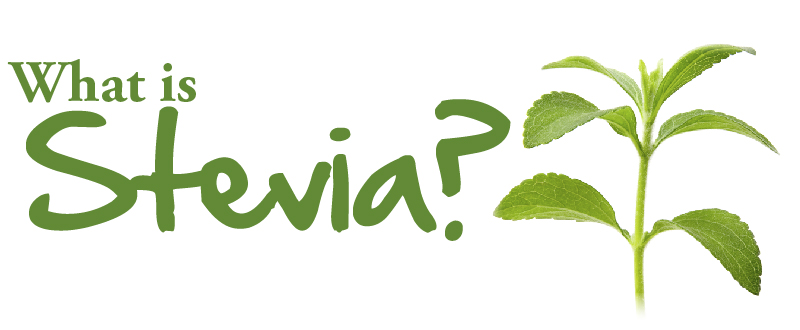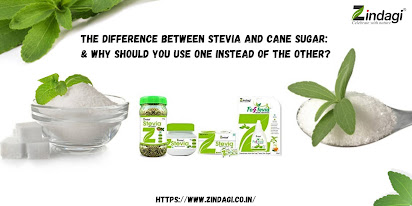What Is Stevia? And Is It Good or Bad for Your Health?
Stevia is a natural sweetener. Although in the last couple of years it has been becoming a mainstream ingredient in the European and US market too, for many it is still an unknown option when it comes to substituting sugar or artificial sweeteners.
What is Stevia?
Stevia is a plant with green leaves growing 2-4 feet tall. It is a native plant to South America; Paraguayan tribes have been using it for centuries as a sweetener and as a medicine too.
Stevia is an herb. Its Latin name is Stevia Rebaudiana Bertoni. It belongs to the Composite family that includes for example lettuce and chicory. The two main compounds that are responsible for Stevia's Extract taste are called Stevioside and Rebaudioside A that found in the plant's leaves.
There are many different types of Stevia. The quality of the sweet flavour of Stevia depends on the species used in production and what form it is consumed in. You can find Stevia in powder and liquid forms. The most natural form that it can be consumed in is the green powder. It is made by simply grounding the dried Stevia leaves. It is about 10-15 times sweeter than sugar. The white powder form is a processed form of Stevia. Its consistence is very similar to caster sugar, but it is several times more concentrated (varies depending on brands). The liquid extract commonly contains alcohol, but alcohol free products can be purchased from different suppliers too. The processed forms (powder or liquid) can be 100-300 times sweeter than sugar.
Stevia has a certain aftertaste that takes a bit of time getting used to. Trying out different forms and brands that exist on the market is recommended to find the one that tastes the best and most suitable for every individual.
As it is becoming more common to use Stevia at home you can choose to grow your own Stevia plant, and use the leaves directly for sweetening your tea.
The history of Stevia
Native tribes in Paraguay and Brazil used Stevia as a sweetener and as a medicine for more than 1500 years. It was discovered and chronicled by Spanish Conquistadors, and it was researched by Swiss botanist called Dr. Moises Santiago Bertoni in the 19th century. By the early 20th century they had already made a Stevia extract.
In Japan Stevia has been used since the 1970's. The country's usage of Stevia is absolutely commercialised. Its share on the sweetener market is more than 40% today. In the USA it was approved as a food additive by the FDA in 2008. In Europe the EU approved its use in 2011. Before, it could be solely marketed as a dietary supplement. Since then it is taking over the sweetener market rapidly. In the US sales rose more than 60% in 2011. In the EU Stevia has gained the biggest popularity in France. Sales of Stevia-based products are rocketing.
Despite of the excitement of the industry and obvious consumer demand the food and beverage giants are still mainly using a mix of sugar and Stevia in their products, and constantly trying to improve their recipes, primarily because of Stevia's aftertaste and its high cost.
The biggest Stevia producer today is China. They have been supplying Japan for decades and now they have the chance to take over the market worldwide.
The benefits of using Stevia
- 100% natural
- Non-toxic
- Near 0 calorie, 0 carbohydrates
- Suitable for diabetics, doesn't raise blood sugar but helping to lower it
- Does not feed fungus in the intestines
- Can reduce blood pressure
- Research shows antioxidant values
- Ideal for cooking, baking and freezing (Note that it doesn't react the same way as sugar when heated, so receipts probably need adjustments)
- Non-fermentative
- Long shelf life
Why is Stevia bad for you?
Despite of all the benefits of using Stevia as a sweetener some say it is not all that good as it seems. A few studies show that low-calorie sweeteners can lead to overeating. It doesn't matter if it's an artificial or natural calorie-free sweetener, when we taste sweet flavour our bodies' cells need to receive glucose; otherwise it gets confused and works imbalanced.




Comments
Post a Comment